Is organizing and coordinating your schedule a complicated chore? Juggling meeting times with coworkers across your work calendar, while trying to defend your personal commitments --- you need a reliable tool to share calendars to see your actual availability.
Let's take a look at the top shared calendar apps in 2023 so you can get your scheduling visibility under control.
What's a calendar sharing app?
A shared calendar app is a digital tool that allows users to create, manage, and share calendars with others. They allow busy professionals to easily coordinate meetings across teams, defend time for productive work, and protect time for events across all of their calendar.
Why do you need a calendar sharing app? Because today's workweek is way too busy for a traditional calendar to handle our complication availability:
So as we can see, there's a lot going on with our calendars, and the lack of balance between our personal and professional lives are taking a serious toll on our mental health. Instead of taking a painful hit every time a scheduling conflict comes up, resulting in forced overtime and personal sacrifices, let's look into the best solutions out there to get your calendars under control. Here are the 9 best shared calendar apps to help you keep your schedule organized and synced with co-workers, friends, family, and more in 2023.
1. Reclaim.ai --- best for team calendar sharing
Reclaim is an AI calendar app for Google Calendar that helps you automatically sync all of your schedules. While many calendar sharing apps only allow you to see your synced events, Reclaim actually blocks your availability across both calendars so your coworkers (and family) can see when you're busy. The best part of Reclaim is that it also offers privacy controls so you can determine how you want shared events to look to people on your calendar --- you can set them to just show as "busy" events for all, anonymous "personal commitments", or show full event details.
This is the perfect tool for companies who want to improve work-life balance for employees, contractors juggling multiple calendars, or individuals who just want to protect personal events on their work calendars.
Additionally, Reclaim is much more than a calendar sharing app. This tool helps you automatically find the best time for your meetings, tasks, habits, and breaks across your existing schedule, with smart AI scheduling to automatically prioritize and reschedule smart events around what matters most to you.
Key features
- Calendar Sync: Auto-sync unlimited calendars (and your availability) to prevent scheduling conflicts.
- Connected Calendars: Schedule your smart calendar events (Habits, Tasks, Smart 1:1s, and Scheduling Links) around your availability of a Connected Calendar --- without syncing events to your work calendar.
- Automatic color-coding: Automatically color-code and categorizes events so you can visually track how you'll be spending time across meeting types, focus work, travel, and personal commitments.
- Tasks: Auto-schedule your tasks in Google Calendar, by priority, before your due dates (while keeping your schedule flexible for changes).
- Habits: Auto-schedule your recurring routines at the best time (within a preferred window) around your existing events (hundreds of templates available).
- Smart 1:1 Meetings: Find the best time for your one-on-one meetings across both attendees' calendars.
- Scheduling Links: Share your availability for meetings with high-priority and flexible duration settings.
- Buffer Time: Auto-schedule breaks and travel time around your calendar events.
- Slack Status Sync: Auto-sync your Slack status to your calendar to prevent interruptions and context switching.
- No-Meeting Days: Defend time for your team to get stuff done every week.
- Stats: Analyze how much time you spend in meetings vs. tasks vs. habits vs. free time.
- Integrations: ClickUp, Asana, Jira, Todoist, Linear, Google Tasks, Zoom, and Slack
Limitations
- Currently only supports Google Calendar (Outlook coming soon).
Reclaim.ai pricing
- Free (includes 1 shared calendar)
- Paid plans start at $8/month (unlimited shared calendars)
2. Cozi --- best for family sharing
If you're looking for a shared calendar app tailored for family life, Cozi is the app for you. Cozi stands out as an all-in-one family organizer that simplifies the coordination of the whole family's schedules and activities. It allows you to view and edit calendars together, keeping everyone up-to-date and informed about family events, school activities, and more. You can color-code each member's calendar for easy identification, making it easy to keep track of everyone.
Beyond that, Cozi also includes additional features, like a shared to-do list, shopping list, and recipe box.
Key features
- Family-centered design: Interface is designed with families in mind, making it easy to organize and share schedules seamlessly.
- Shared to-do lists: Collaborate on household tasks and responsibilities with a shared to-do list.
- Shopping lists: Keep track of grocery needs and other shopping items with a shared shopping list accessible to all family members.
- Recipe box: Store and share favorite family recipes within the app, making it a digital cookbook for the entire household.
- Notifications & reminders: Set reminders for important events, appointments, or tasks.
- Birthday tracker: Automatically imports birthdays from your contacts and displays them on the calendar, helping you plan ahead for special occasions.
Limitations
- Lacking features common in similar apps: No in-app messaging, expense tracking, or other features usually found with co-parenting apps.
- Ads in the free version: Includes in-app ads unless you pay for a premium account.
Cozi pricing
- Free (unlimited shared calendars)
- Paid plans start at $29.99/year (unlimited shared calendars --- ad-free)
3. TimeTree --- best for scheduling group activities
TimeTree is a great calendar-sharing app for coordinating events and schedules with multiple people, making it ideal for families, friends, teams, and organizations. Best known for its shared calendar, TimeTree allows multiple users to contribute, edit, and view events all in one place.
The app also supports chat so users can communicate directly within the calendar. Discussing event details, sharing important updates, coordinating schedules, and even voting on potential dates is seamless and convenient with TimeTree.
Key features
- Shared calendar for groups: Collaborate with family, friends, or colleagues in real-time, creating a centralized hub for all group activities and events.
- Event reminders: All members receive reminders for upcoming events, so no one forgets important gatherings or appointments.
- Discussion & chat features: Each calendar includes a chat room where users discuss event details and make decisions on potential dates or activities.
- Integration with external calendars: Syncs with existing calendar apps like Google Calendar, Apple Calendar, and Outlook.
- Supports multiple calendars: Users can set up several calendars on TimeTree for different groups or personal use.
Limitations
- Primarily designed for mobile: TimeTree's web version is rather difficult to use compared to the mobile version, with some features only usable on mobile.
- Learning curve: New users may need time to get accustomed to the app's full range of features and collaboration options.
TimeTree pricing
- Free (includes 20 shared calendars)
- Paid plans start at $4.49/month (includes 20 shared calendars --- ad-free)
4. Asana --- best for project visualization scheduling
Asana is well-known as a project management app. Still, it also has some calendar-sharing functionality with task tracking and event organization for teams. Asana's calendar view offers a visual representation of tasks and deadlines, allowing users to view project timelines and milestones in a clear, intuitive format. You can assign due dates to tasks, set priorities, and even create dependencies between tasks.
However, while Asana can get events on the calendar, it's limited once it does. After a task is added to the calendar, it won't automatically reschedule if priority levels or deadlines change. It also can end up making your schedule jam-packed with tasks if you're managing a big to-do list, making it very difficult to find time for a new meeting. Asana's own Google Calendar sync is also just one-way, so it doesn't mark tasks as done bi-directionally. Fortunately, Asana integrates with Reclaim.ai, so you can automatically schedule your tasks in Google Calendar as smart events while keeping your schedule flexible for changes and set up a two-way sync between platforms.
Key features
- Shared calendars: View your team's work in one online calendar to plan, manage, and visualize upcoming work.
- Scheduling rules: Automatically add events to the team calendar and create Google Calendar meetings when tasks reach a specific stage.
- Task management: Create and manage all of your tasks, and organize them in projects to easily collaborate with your team.
- Visual project timeline: The calendar view provides a bird's-eye view of project schedules and helps understand task dependencies and critical deadlines.
- Portfolios: Manage larger strategic initiatives and monitor important projects as a list or on a timeline in a single place.
- Collaborative teamwork: Facilitates team collaboration, allowing members to discuss tasks, share files, and track project progress together.
- Notifications & reminders: Users receive notifications and reminders for upcoming tasks and deadlines.
- Cross-platform compatibility: Accessible via desktop, mobile, and tablet devices.
Limitations
- One calendar/project: Asana's shared calendar only allows you to set up one calendar per project, so you end up having to manage multiple calendars across all the projects you're working on.
- Geared towards work & project management: Asana is primarily designed for work-life and team projects. So, its calendar-sharing features aren't well suited for personal life events.
Asana pricing
- Free (includes unlimited projects/calendars)
- Paid plans start at $10.99/month (includes unlimited projects/calendars, rules, & timeline)
5. Fantastical --- best for natural language input (Apple users)
Fantastical is one of the most user-friendly calendar-sharing apps on our list. However, the app's key strength is its ability to effortlessly turn plain English phrases into scheduled events. With Fantastical, simply type or speak your event details in plain language, and the app intelligently converts it into a scheduled event with the appropriate date, time, and location.
Beyond its natural language input, Fantastical offers powerful features, such as event and task management, event invitations, and support for multiple time zones.
Pros & key features:
- Shared calendars: Share calendars with yourself or across a group to see all the events for each person on one screen.
- Natural language event entry: Transform plain language into scheduled events to simplify event creation.
- Intuitive user interface: The visually appealing design and multiple calendar views offer a smooth and customizable scheduling experience.
- Event invitations: Invite others to events directly from the app.
Limitations
- Premium necessary for most features: To access certain features available for free on other apps, a premium subscription is required.
- Desktop version is limited: Fantastical only includes a desktop version for MacOS.
Fantastical pricing
- Free (includes 1 calendar set)
- Paid plans start at $4.75/month (unlimited calendar sets)
6. Taskworld --- best for combining task management and calendar sharing
Taskworld is a calendar-sharing app that combines task management, project tracking, and calendar integration in one platform. With Taskworld, you and your team can easily collaborate, set timelines, share files, gain visual insights, and work on tasks across different departments at the same time. The calendar view gives users a clear and organized overview of their tasks, deadlines, and project milestones and allows users to create events directly from tasks.
However, while Taskworld's shared calendar may make it easy to plan your projects, it doesn't have any automatic rescheduling features. So, if things come up, you'd need to reschedule your team's tasks manually.
Key features
- Shared calendars: View the whole team's tasks in single shared calendar*.*
- Unified task & calendar management: Combining task management and calendar integration creates a holistic platform for organizing projects and events.
- Collaborative workspace: Collaborative features, including task assignments, comments, chat features, and file sharing, are helpful for teams and collaborative work.
- Multiple views: Includes various views, such as Calendar, Kanban, and Gnatt timelines, to better sort and understand your progress.
- Integrated chat: Easily connect with colleagues, your team, or the entire organization, and share files instantly or create video meetings with a simple click.
Limitations
- No automatic rescheduling: Taskworld does not have any smart scheduling or automatic rescheduling features. While it does automatically change the due dates of dependencies, you still need to manually reschedule tasks if need be.
- Relatively expensive: While Taskworld offers a free version with basic capabilities, users may need a subscription to access advanced project management features.
Taskworld pricing
- Free (unlimited projects/calendars)
- Paid plans start at $8/month (unlimited projects/calendars)
7. Outlook --- best for Microsoft users
Microsoft Outlook is a staple in the business world, and its shared calendar makes it a top contender among the best calendar apps. The calendar syncs with your email, contacts, and other Microsoft services, creating a unified platform to manage your time and communication. One of the standout features of Outlook is the ability to create appointments and events directly from emails with a simple click.
But Microsoft Outlook suffers from some serious limitations when it comes to calendar sharing, similar to the other big traditional calendar platforms. Sharing your personal calendar with your work calendar, by default, doesn't allow your coworkers to see when you're busy with a personal event. However, making all events visible (which would show you're busy) will let your coworkers see all private details like doctor's appointments or job interviews.
Key features
- Calendar sharing: Add other users to your viewing permissions to share details of your calendar or create specific calendars to share with your team.
- Email integration: Calendar integrates smoothly with your email, contacts, and other Microsoft services.
- Quick event creation: Turn emails into appointments with a single click.
- Multiple calendar views: Users can choose from various calendar views, tailoring the display to their preference and making it easy to manage schedules.
- View group schedules: Users can create calendars for groups or specific resources, such as departments or conference rooms.
- Automatic calendar updates: Add events such as flight, hotel, and car rental reservations to the calendar automatically.
Limitations
- Doesn't actually block your availability: Outlook, by default, doesn't allow your coworkers to see when you're busy with a personal event through their shared calendars.
- Privacy issues: However, you can make all shared events between your personal and work calendars visible to your coworkers, but then they'll be able to see the private details of your personal events.
- Lack of customization: Outlook lets you customize some elements by syncing with other Microsoft services, but not so much for other third-party apps, and it lacks the overall customization options found in other platforms.
Outlook pricing
- Free (unlimited shared calendars)
- Paid plans start at $69.99/year (unlimited shared calendars)
8. Apple Calendar --- best for Apple users
Apple Calendar, formerly known as iCal, is the calendar app specifically designed for macOS, iOS, iPadOS, and watchOS devices. If you're a heavy user of Apple products and need your calendar to sync across each very easily, then Apple Calendar may be the best choice for you.
Still, Apple Calendar suffers from the same limitations as Outlook and Google Calendar. That is, your coworkers can't see when you're busy with a personal event by default, and sharing those personal events will make the private details available for all to see. However, this is less severe of a limitation for Apple Calendar as companies don't use Apple Calendar as a company service. So the issue of colleagues not seeing when you're busy with other events is less of a problem than with other shared calendars like Google Calendar or Outlook.
Key features:
- Shared calendars: Collaborate with other iCloud users by sharing specific calendars for group events, team projects, or family gatherings.
- Integrates across Apple ecosystem: Apple Calendar syncs effortlessly across all Apple devices.
- Event invitations via email: Invite non-iCloud users to your events with email invitations, enhancing inclusivity and accessibility.
- Read-only calendars: Share a calendar without allowing viewers to change anything on it.
- Create events with Siri: Create and modify events and appointments using Apple's virtual assistant Siri.
Limitations
- Limited integration with non-Apple devices: While Apple Calendar excels within the Apple ecosystem, its synchronization with non-Apple devices may require additional steps and third-party apps.
- Difficulty showing your availability: Apple Calendar, by default, doesn't allow your coworkers to see when you're busy with a shared personal event.
- Privacy issues: When you share events from your personal and work calendars, your coworkers can see all your private event details.
Apple Calendar pricing
- Free with iCloud account (unlimited shared calendars
- Paid plans starting at $0.99/month (unlimited shared calendars)
9. Google Calendar --- best for view only (not merging) for Google users
Google Calendar, a household name, and one of the best known shared calendar apps, actually ranks pretty low on our list. While Google Calendar allows you to share calendars through its basic feature, it has some pretty big limitations. Sharing a Google Calendar makes it difficult to maintain your privacy between your work and personal calendars.This is because your personal events will be visible to everyone if you share them with your work calendar. That, and you can only share with yourself so coworkers can't see shared calendar events.
Key features
- Shared calendars: Share calendars across teams, work, and personal to coordinate your individual scheduling.
- Cross-platform syncing: Syncs across various platforms, including desktop, mobile, and tablet, ensuring you stay updated on the go.
- Event reminders: Set customizable reminders that can be sent via email or as push notifications so you don't miss an event.
- Automatic calendar updates: Add events such as flight, hotel, and car rental reservations to the calendar automatically.
- Gmail integration: Add events from Gmail to easily automatically populate your calendar.
- Time zone support: Adjusts event timings according to different time zones for frequent travelers or remote teams, reducing scheduling headaches.
Limitations
- Privacy issues: When you share events from your personal and professional calendars, all events from your personal calendar will be visible to others on your professional calendar.
- Doesn't prevent overbooking: Personal events won't show when using Google's Find a Time feature, so you're still at risk of overscheduling.
Google Calendar pricing
- Free (with a Google account)
- Paid plans start at $6/month
Take control of your team's unwieldy calendar 📅
Calendar sharing has become indispensable for modern-day scheduling and organization. From coordinating family events to managing work projects and personal commitments, it's not unusual for our calendars to become unwieldy, especially when trying to fit other people into the mix. But with features like collaborative sharing, intelligent event suggestions, and seamless synchronization, these calendar-sharing apps can help us stay organized and prevent anything important from slipping through the cracks.
Did we miss anything? What calendar-sharing apps do you use? Tweet us @reclaimai to let us know!


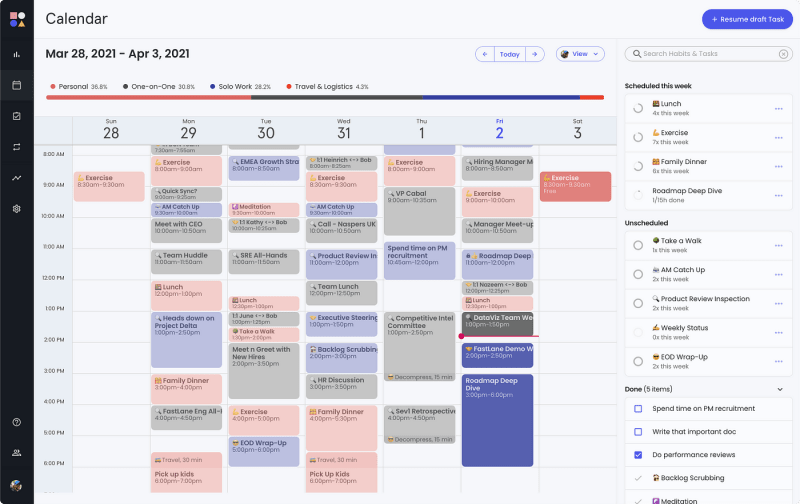
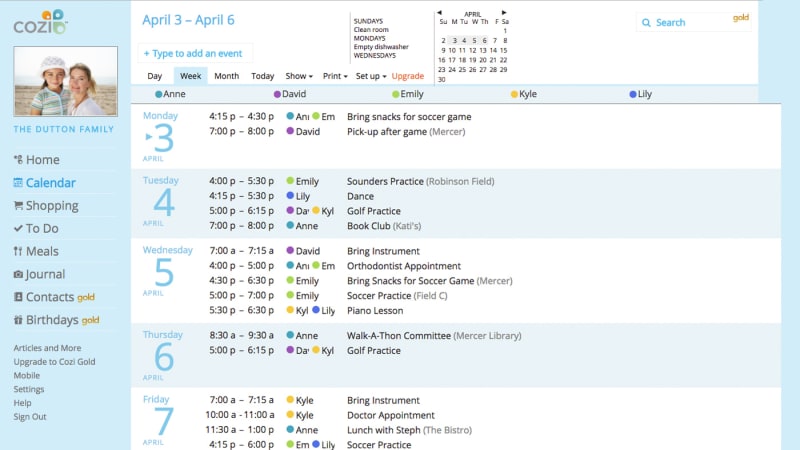
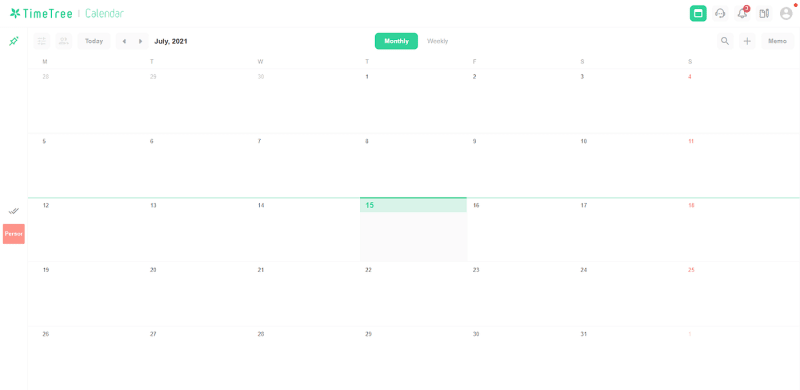
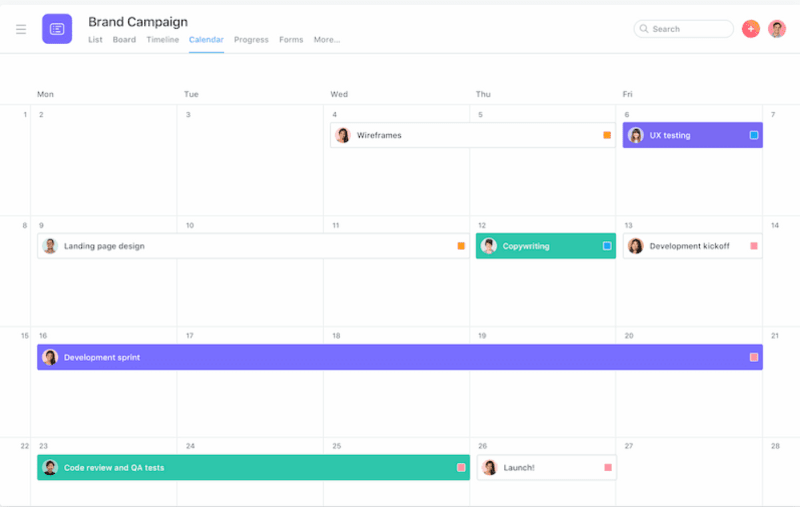
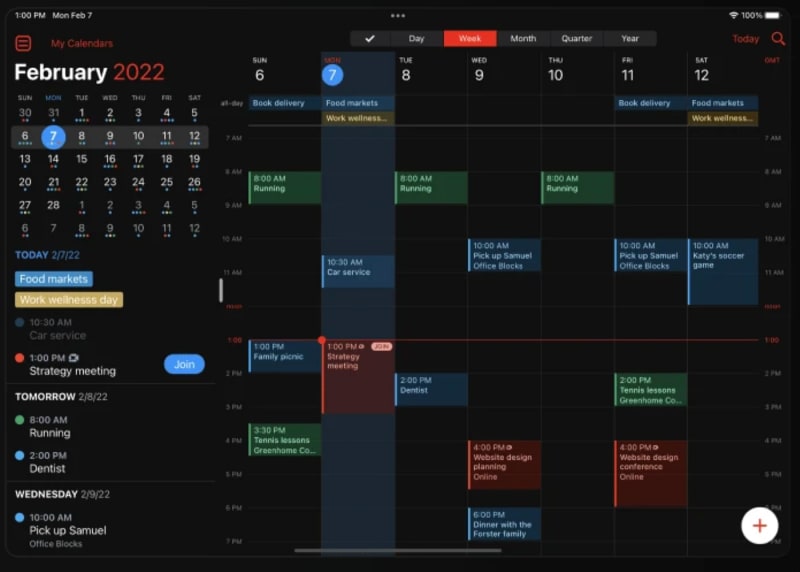
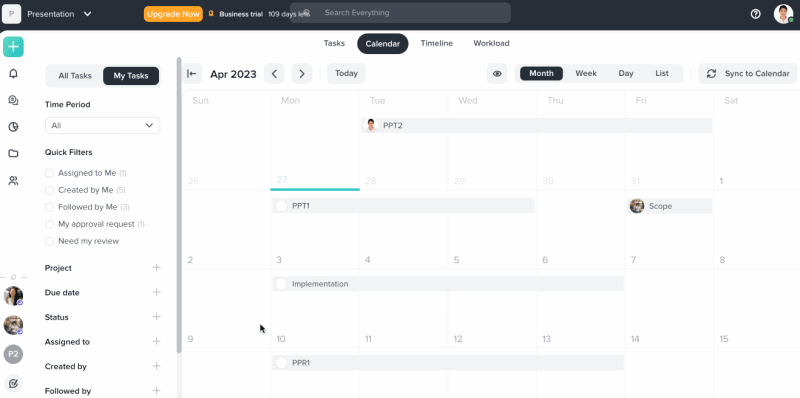
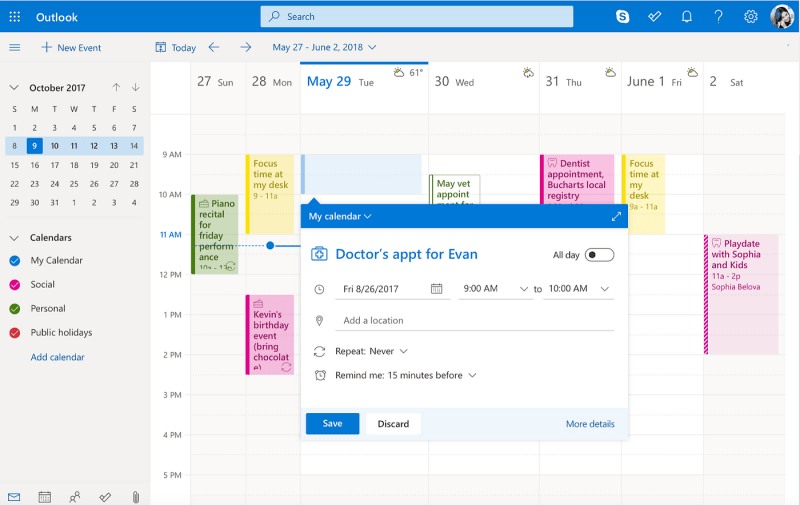
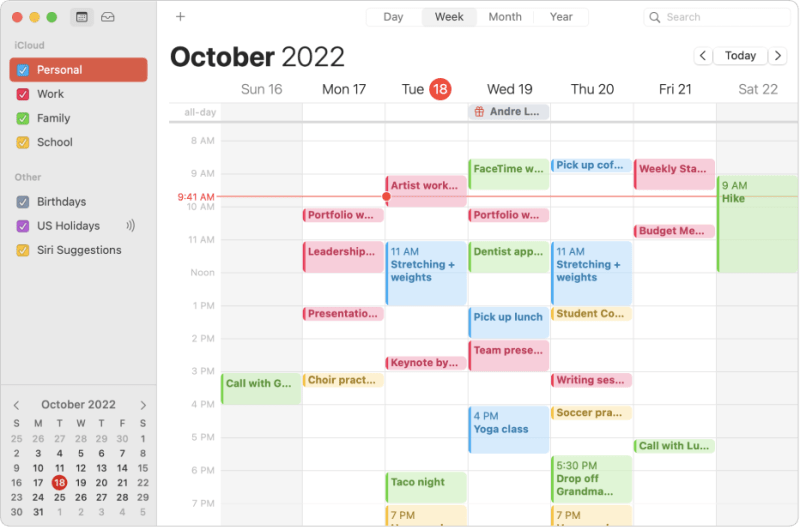
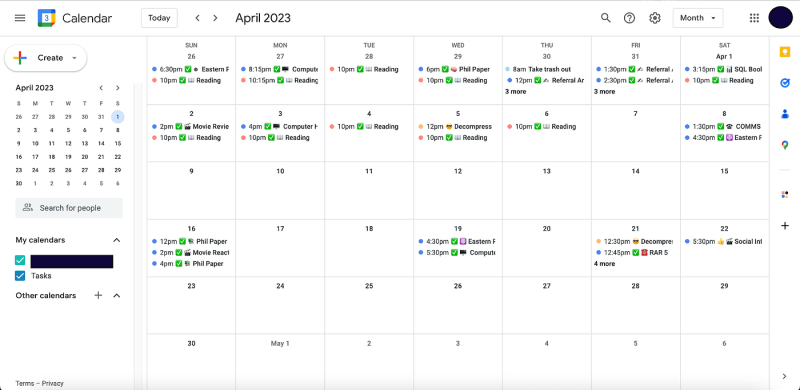

Top comments (0)